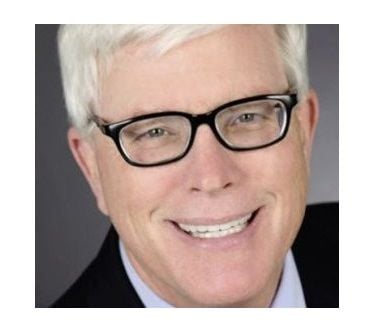
"It is not unimaginable to have military options to respond to North Korean nuclear capability," Gen. Joseph F. Dunford Jr., chairman of the Joint Chiefs of Staff, told NBC News's Andrea Mitchell last week at the Aspen Security Forum. "What's unimaginable to me is allowing a capability that will allow a nuclear weapon to land in Denver, Colorado. That's unimaginable to me. And so my job will be to develop military options to make sure that doesn't happen."
Given that relatively few people know of Dunford's blunt warning, odds are very high that only a handful of readers have heard of China's Hisense Electric and its connection with North Korea's missile testing and nuclear weapons programs. But understanding that connection, and the connection of every commercial dispute to the North Korean crisis, is central to appreciating the dilemma the Trump administration faces in its dealing with China and by extension North Korea.
Since the Clinton administration's October 1994 agreement with North Korea, the long fuse of the North Korean crisis has been burning. Indeed, it is fair to say that the fuse has been burning since the armistice in the Korean War was signed on July 27, 1953. Beijing was a party to that long-ago non-ending of a brutal war, and it is very much a part now of the front-and-center crisis on the Korean Peninsula.
It also makes TV screens, through the state-owned Hisense Electric. "Hisense is a Chinese manufacturer of television screens, a competitor to Samsung or Sony or Vizio, which you might see at a Costco or a Best Buy," John Yoo, law professor at the University of California at Berkeley, said on my radio show this month. "The thing is, Hisense is completely owned by a Chinese city, by a subdivision of the Chinese government."
Yoo and I were discussing the difficulty of achieving workable free-trade agreements with countries such as China with massive stakes in "private" businesses that operate with all the advantages of a state actor. Sharp, a Japanese company now owned by Taiwanese company Foxconn, is now suing Hisense in California courts for what Sharp claims is deep damage to its brand via shoddy workmanship by Hisense, a claim Hisense denies.
Expect to see a prolonged battle over whether Hisense can even be sued in a state court given its state-owned status. But if the United States steps into the fray in defense of its own regulatory standards, suddenly yet another disagreement is on the table in the rapidly expanding list of U.S.-China disputes, a list that already includes hundreds of commercial arguments and some serious national security ones,such as the construction of militarized artificial islands and various espionage cases.
All of these disputes are overshadowed by the North Korean crisis, in essence held hostage by a dictator with scores of weapons of mass destruction of all sorts, including nukes. President Donald Trump has repeatedly called on China to help disarm its unstable dependent ward, but to no obvious avail, just as Presidents Barack Obama, George W. Bush and Bill Clinton were frustrated by China's apparent willingness to risk a deadly war on the peninsula rather than risk seeing Korean unification under the leadership of South Korea.
Unlike those presidents, though, Trump campaigned on an aggressive trade agenda with China that reaches far down into the complexities of its intricate network of commercial advantages, a network long considered by senior White House aide Peter Navarro to be basically war by other means.
(The former professor at the University of California at Irvine is the author of the decidedly un-academically named "Death by China: Confronting the Dragon - A Global Call to Action.")
The reality is, however, that the United States needs China right now more than we need fair trade. Sharp and the state of California might have to fight for their own interests any legal way they can, and indeed state and local U.S. governments might try to rebalance scales on behalf of non-Chinese companies in such legal battles. But the federal cavalry isn't coming over the hill in the China trade battle anytime soon. The Trump administration needs to tell its grass-roots supporters why.


 Contact The Editor
Contact The Editor
 Articles By This Author
Articles By This Author